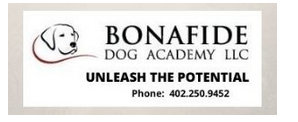- Do you subscribe to Dharma Dog Training’s Newsletter? You should.
- A Unique Campaign from The Humane Society of the United States
- Rabid bats in Omaha- Stay safe, prepared with these tips
- Springtime Activities in Omaha
- Mill Dog Monthly from Bailing Out Benji
- World Spay Day, Legislative Alert in Nebraska
- Attend the Nebraska Rescue Council’s monthly meeting this Saturday
- Five Hard-to-Ignore Reasons to Adopt!
- Paws in Pink to Benefit Breast Cancer Foundation
- VCA, Inc. Acquires MidWest Vet Specialists from Kansas State University
How Are Puppy Mills Shut Down?
Sitting in Starbucks, drinking our weekly refreshers, Eric and I were talking pets- the usual. We had recently shared a story from our friend Mindi Callison of Bailing Out Benji which answered a basic question: What is a puppy mill? If you’re unsure, check out the answer.
Dovetailing that query, I asked Eric another question: How do puppy mills get shut down?
I’ve been actively involved in the pet community for a year now but didn’t know the answer, so I figure others probably are unsure too.
Eric knew the general answer but we wanted to find out more specially, so we reached out to our friend Mindi once again.
The question is not easy to answer because there is not just one specific answer.
Here is what we found out.
There are two different types of puppy mills: licensed and unlicensed. “Sadly, many of the puppy mills that we see and hear about are legal… 100% cruel… but 100% legal. These large scale, commercial dog breeding facilities are licensed and ‘inspected’ by the USDA,” said Mindi. “I say ‘inspected’ because these inspections are risk-based, meaning the inspectors come every two to three years unless a dog is visibly wounded or has extreme sickness. Then, the inspector says the breeder needs to get the dogs to a veterinarian, and they might come back in a few weeks.”
These puppy mills are able to run and operate because of the slim rules the USDA has in place.
The rules are outlined in the “What Is A Puppy Mill?” article. But because these rules are so ridiculous (pardon the opinion-based statement) here is a reminder:
Not every USDA licensed dog breeder runs a horrible operation. But they are all required to follow the same very lax laws the USDA set forth in the Animal Welfare Act. According to the AWA:
-Cage size: must be 6 inches larger than the size of the dog, on all sides
-Up to 12 dogs can be housed in one cage
-Dogs never have to be let out of their cages. Breeders only need to have a written exercise plan
-There is no limit to the number dogs a breeder can have—many have over 1,000
-There is no age limit for breeding dogs. If a dog is able to produce puppies for ten years, that’s how long they could be in the facility.
– The inspections are “risk based”. Meaning if there are no violations, the breeder might not see an inspector for a few years.
– The AWA does NOT cover emotional well-being.
And there are a few dozen inspectors for USDA facilities in the entire United States. For more information on the AWA, click here.
Dogs that are made to live in these conditions, where the profit of the facility is more important than the welfare of the dogs, is deemed a puppy mill by the public.
There is a difference between a USDA license and state license for breeders. Here is an example from Mindi:
“Julie’s Jewels of Jewel, Iowa was HSUS Horrible hundred list place holder. In September 2010, JJ’s received 19 USDA violations including excessive matting, open wounds, bug bites, excessively filthy cages and kennels so small the dogs couldn’t turn around. After a frightening USDA inspection, where Julie Ahrends harassed the inspector and tried to run her off of the road, her USDA license was pulled. But the state of Iowa deemed her fit to breed for 3 more years- until the HSUS report. Once local media took the story and ran with it, JJs closed their doors and auctioned the dogs off at a puppy mill auction. Bailing Out Benji went down with several rescues to save as many as we could. Sadly, since her state license wasn’t officially pulled, she can legally start breeding again at any time.”
In this instance, the USDA was the reason for the shut down of the puppy mill, after the poor conditions became absolutely torturous for the dogs. It should have never gotten to that point, but because she was in compliance with the USDA rules, they couldn’t shut her down before these types of conditions arose. What’s even scarier, Iowa will allow her to open up another facility.
For unlicensed puppy mills it’s a different story.
“When we hear about the big puppy mill ‘busts’ occurring with the help of larger organizations like the HSUS or the ASCPA, these mills are, more often than not, unlicensed, not inspected and illegal,” said Mindi. “These are the dog breeding operations with no oversight that typically sell anonymously over the Internet and don’t allow visitors. Puppy mills like these are closed down after complaints and tips from buyers or from those in the community. The bottom line is that if you SEE something, SAY something.” You’ll here this SEE and SAY idea again in just a minute…
Mark Langan, Vice President of Field Operations at the Nebraska Humane Society, also gave us a note:
We want to save them all and we justify going and purchasing dogs from stores (that buy their dogs from puppy mills) by telling ourselves that we are saving that puppy. In reality, we are just keeping the store open and allowing the cruelty to continue to happen to thousands of dogs. By shutting down a mill we save more than just one.
Education and awareness are key.
How can I help?
There are many ways you can help the dogs trapped in puppy mills. They very from being active, to just being an advocate.
1. If you SEE something, SAY something. If you were someone that unknowingly stumbled upon a bad breeding facility to purchase a puppy, you need to report it! You can either report it to the USDA, your state agency, your local rescue or shelter, or you can contact us and we can point you in the right direction!
2. Be an educator. One of the best ways you can help is by educating your friends, family and coworkers. By sharing this article and making a status about where you shouldn’t buy a dog could deter someone you know! Our organization firmly believes that educating the general public will be the end to puppy mills.
3. Be an advocate. Look in your area for pet stores that sell puppies and educate about your local problem. Hang up flyers (we can help!) or even start a local protest (we can help with that too!) Getting the word out locally, will break the lies of the pet store and will bring more awareness about puppy mills to your community.
4. Contact your legislators. By letting your legislators know what you care about, it tells them how to vote. You can send a quick email to your legislator and just ask them where they stand on common sense animal issues, especially puppy mills. You may be shocked to find out that not everyone is an advocate for the animals.
5. Don’t give pet stores that sell puppies your money. By boycotting a pet store that sells puppies, you are showing them that you can’t support their business. You can even tell the owner why you are choosing not to shop at their store anymore.
6. Look for a reputable breeder in your area. If you are set on buying a puppy and you haven’t checked your local rescues or shelters, then ask your local canine club about reputable breeders. Just remember to always check out their facilities!
7. Stay updated. Like our facebook page and stay updated on how you can help in your area. Don’t forget to SHARE!
Related Posts
Latest News
-
Join Us at Pick A Pooch 2025: A Fun-Filled Weekend for the Whole Family
A Fun-Filled Weekend for Pet Lovers and Families Alike Mark...
- Posted 1 year ago
- 0
-
Beardmore Presenting Sponsor At This Years Pick-A-Pooch event
🐾 We are thrilled to announce that Beardmore Subaru is...
- Posted 4 weeks ago
- 0
-
How Having A Pet Can Change Your Life
Having a pet can open your heart in ways that...
- Posted 2 months ago
- 0
-
How To Improve The Life Of Your Senior Pet
Do you have an elderly fur baby and want to...
- Posted 3 months ago
- 0
-
Springtime Activities To Enjoy With Your Furry Friends
Are you preparing for warmer weather and want some ideas...
- Posted 4 months ago
- 0
-
Pros And Cons Of Microchipping Your Pets
Have you considered whether your pets should be microchipped and...
- Posted 5 months ago
- 0
-
The Best New Fun Toys For Dogs And Cats
The Best New Fun Toys For Dogs And Cats Did...
- Posted 5 months ago
- 0
-
Heartfelt Ways To Show Your Pet You Love Them
Did you know there are more ways to show your...
- Posted 6 months ago
- 0


























You must be logged in to post a comment Login